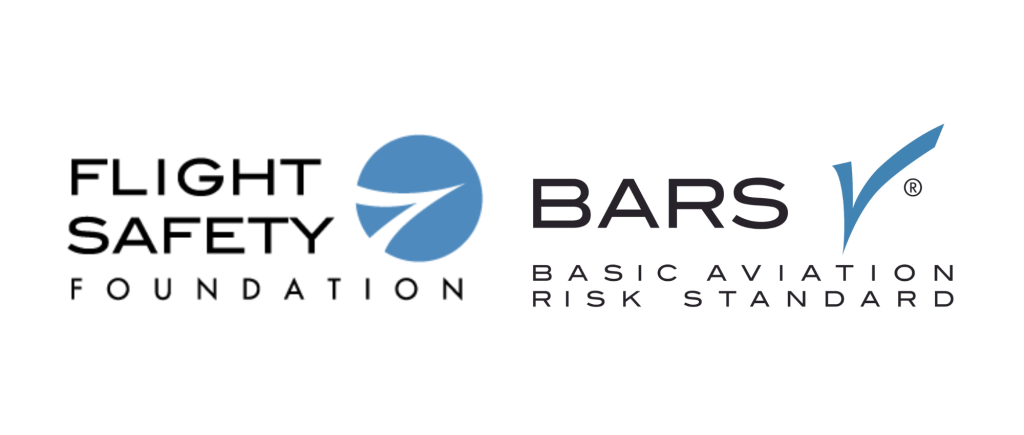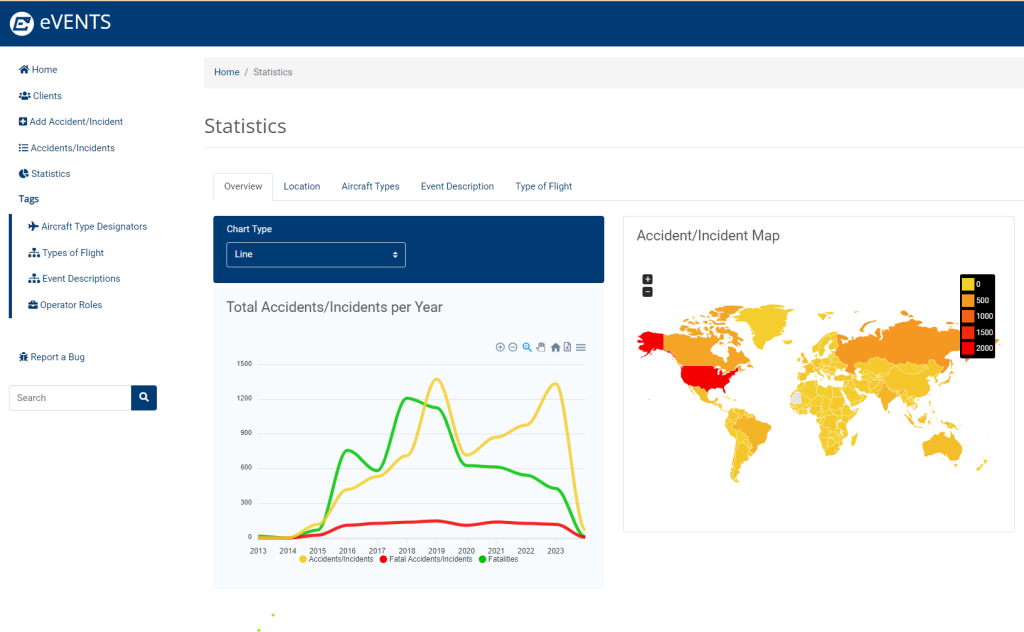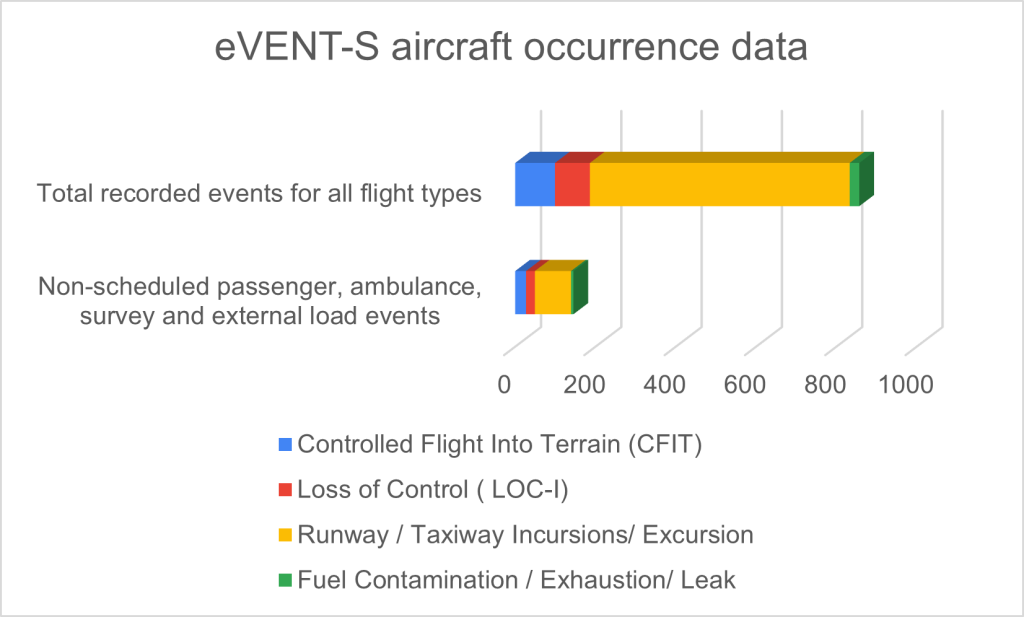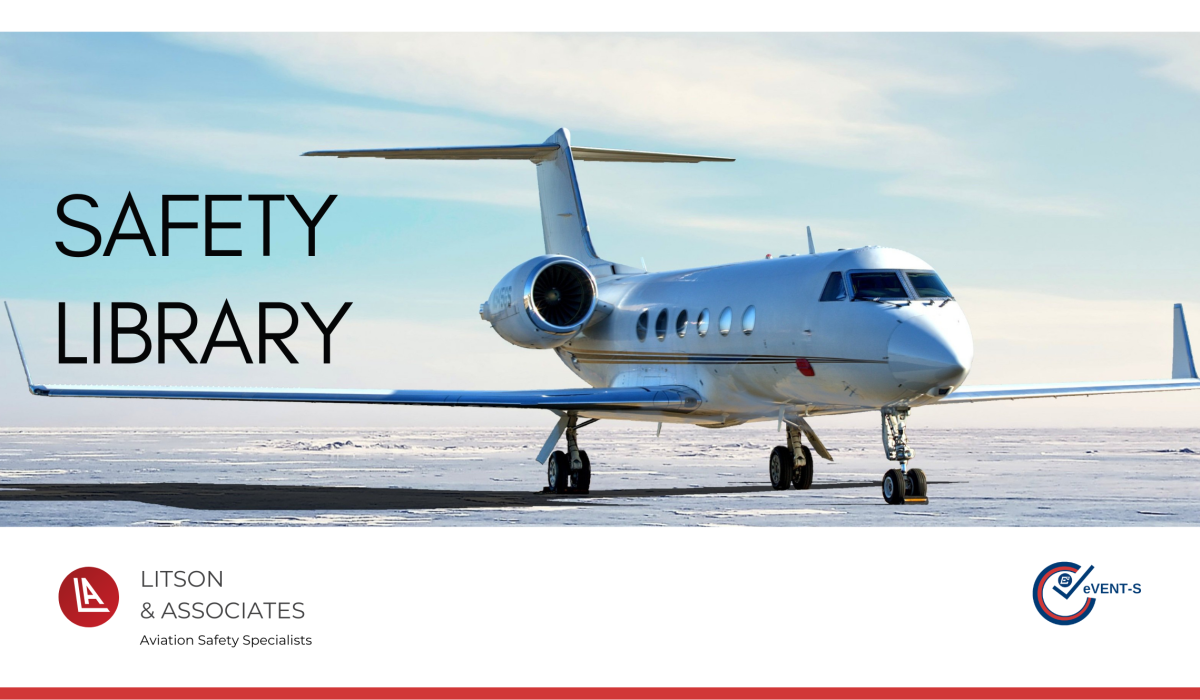Safety in Numbers
L&A’s Safety Specialists discuss
Ensuring Aviation Safety for Non-Scheduled Aircraft Operators: trends, statistics and referencing the Basic Aviation Risk Standard
By Kobus Du Plessis
Table of contents
Introduction
Aviation Safety is of paramount concern within the aerospace industry, encompassing various stakeholders including non-scheduled aircraft operators. These operators play a crucial role in meeting the diverse demands of passengers and cargo transportation. This article explores current trends, statistical insights, and the importance of adhering to the Basic Aviation Risk Standard (BARS) for non-scheduled aircraft operators.
Rising demand for non-scheduled operations
Non-scheduled aircraft operators often engage in diverse operations, including charter flights, air ambulance services, external load and aerial surveys. The rising demand for these services has led to an increase in the number of non-scheduled flights worldwide. Regulating non-scheduled operators poses unique challenges due to the dynamic nature of their operations. Ensuring safety standards across diverse missions also requires a comprehensive and adaptable approach.
Setting the Safety Standard
The Flight Safety Foundation (FSF), Basic Aviation Risk Standard (BARS), is a globally recognised compilation of Aviation Safety Standards designed specifically for non-scheduled operators, including all contracted aircraft operations. BARS provides a framework for operators to enhance Safety and Risk Management in their operations. It requires an implemented Safety Management System (SMS) that provides a proactive approach to safety through continuous monitoring, analysis and the improvement of Safety Standards within an organisation.

BARS provides a comprehensive list of identified Risks, Mitigations and Recovery Measures. It emphasises the importance of a thorough risk assessment process that helps operators identify and mitigate potential risks before each flight, as well as the importance of recurrent training.
eVENT-S Analysis
Litson & Associates’ bespoke Aircraft Occurrence Database, eVENT-S, provides comprehensive records on more than 7,000 aircraft incidents and accidents. Non-scheduled passenger, survey, air ambulance and helicopter external load operations denote a large percentage of the total number of recorded occurrences in each of the following categories.

Records indicate the following data captured in the last 5 years (Jan 2019 – Dec 2023):
- Controlled Flight Into Terrain: 26/99 (26,2%)
- Loss of Control: 22/87 (25,2%)
- Runway & Taxiway Incursions/Excursions: 90/647 (13,9%)
- Fuel Contamination/ Exhaustion/ Leak: 6/24 (25%)

Conclusion
The key statistics and trends derived from the recorded occurrences in eVENT-S, as indicated above, accentuate the importance of adherence to the BAR Standards. This in turn will assist the operators in enhancing safety, mitigating risks and contributing to the overall improvement of Aviation Safety worldwide. Continuous improvement in safety protocols will further strengthen the resilience of non-scheduled aviation operations. In conclusion, non-scheduled aircraft operators play a crucial role in the aviation industry and thus ensuring their safety is of utmost importance.
References
- FFS BARS – THE BASIC AVIATION RISK STANDARD V9 – Contracted Aircraft Operations v9
https://flightsafety.org/bars/the-bar-standards-and-manuals/
- L&A’s eVENT-S – Aircraft Occurrence Database
